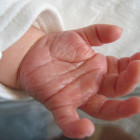The federal government expects the states to do more to prevent delinquency but is offering up less money to help with the problem. That’s a formula for tension, which became apparent this week as a 15-member federal committee heard state officials’ complaints about the Office of Juvenile Justice and Delinquency Prevention, according to Youth Today. The committee, which is charged with assessing juvenile justice reform, heard plenty at its second meeting about the OJJDP from Joe Vignati of the Georgia Governor’s Office for Children and Families, among others. Vignati and two others spoke about OJJDP compliance monitoring and funding issues. The three state officials agreed that OJJDP’s training and technical assistant is exemplary, but argued that the lack of funding is hindering efforts to support programs.
Twenty states now receive only a minimum allocation of $600,000 through the OJJDP. Funds for alternatives to imprisonment, such as emergency foster care and shelters, “have dried up,” said Nancy Gannon Hornberger of the Coalition for Juvenile Justice in Washington, D.C.
Among the concerns Vignati raised:
Data on juvenile justice and delinquency is inconsistent between the states.


